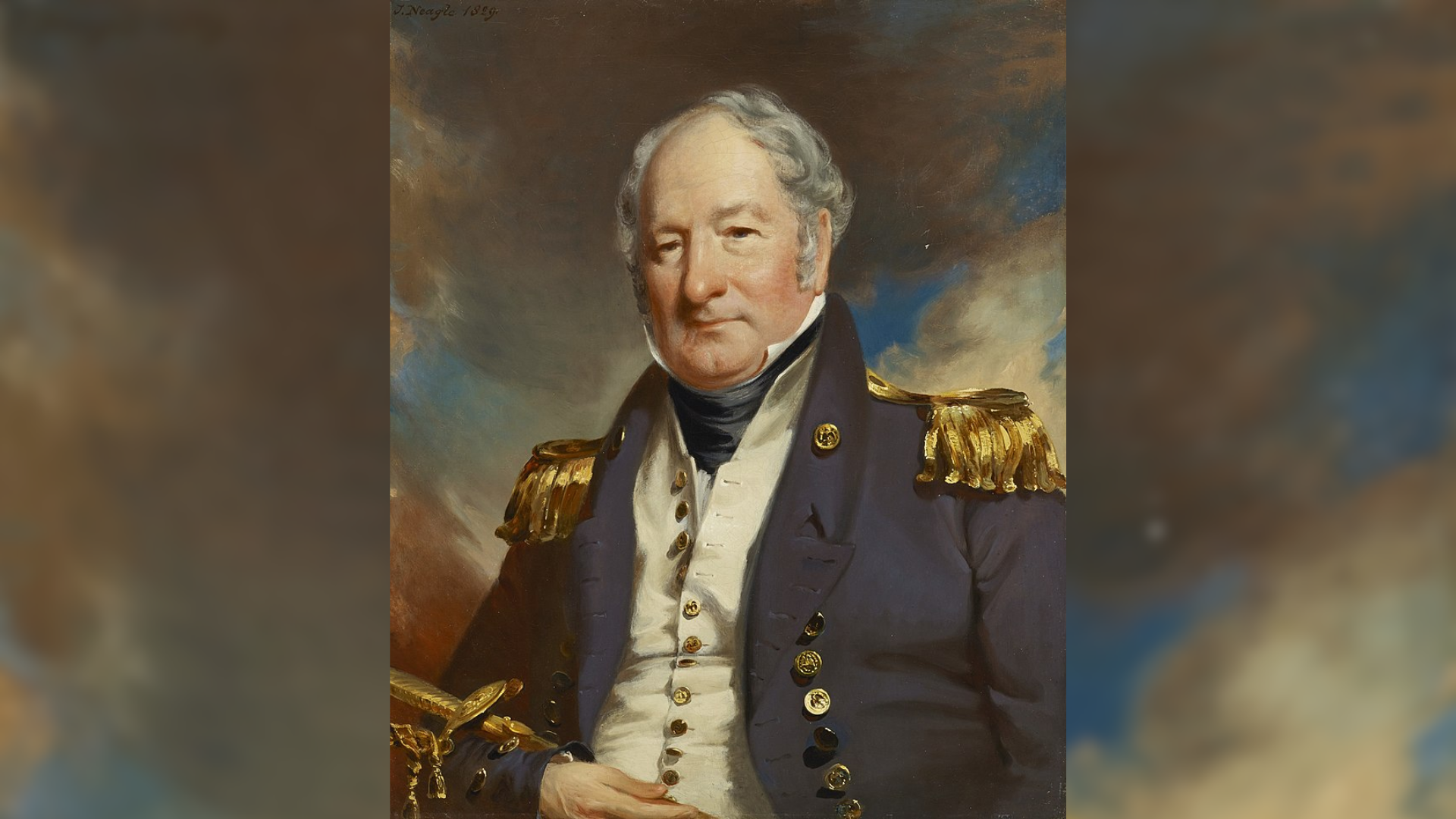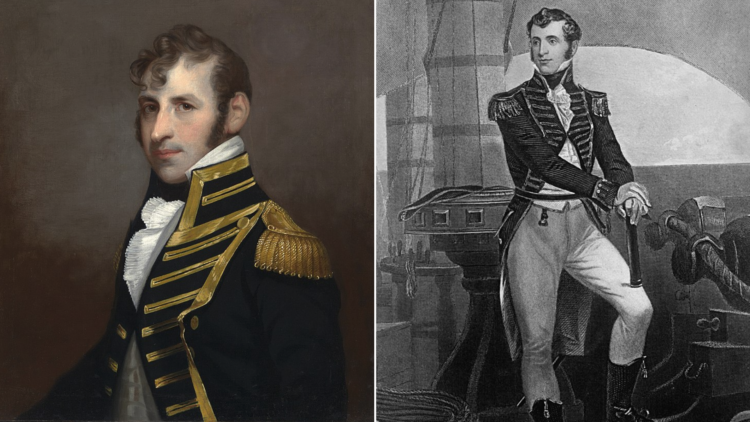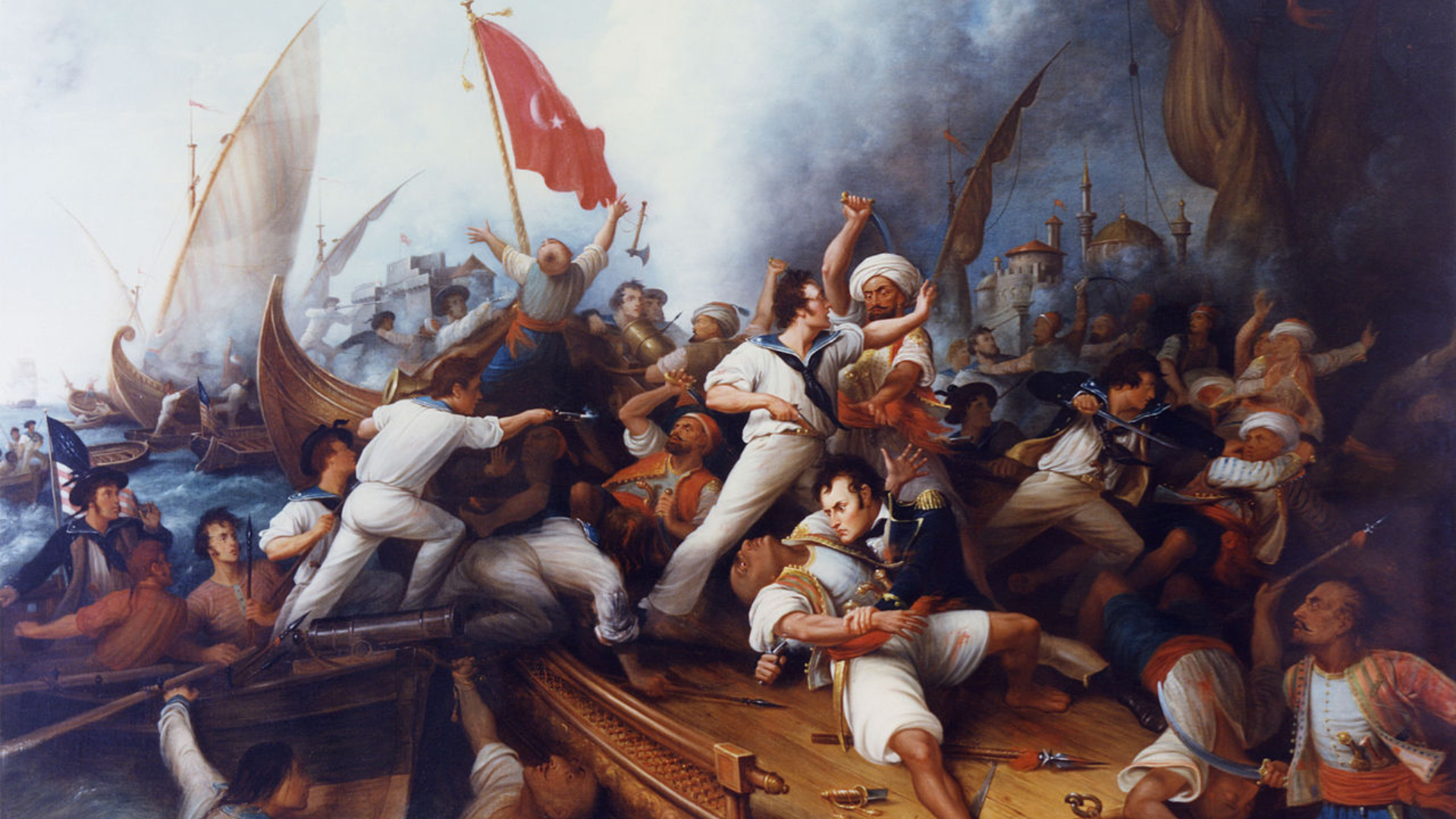In 1807, he was involved in a whole fiasco called the Chesapeake-Leopard Affair.
Basically, a British ship bullied Barron’s ship, the Chesapeake, into surrendering. It was a humiliating defeat, and Barron ended up facing a court martial.
Guess who was on the jury? You guessed it: Stephen Decatur.
Now, Decatur wasn’t exactly Mr. Sunshine. He had a bit of a temper and a strong sense of honor.
The court-martial found Barron guilty, which left a serious grudge festering. Barron felt like he’d been unfairly scapegoated and blamed Decatur for playing a part in it.

The Duel on the Bladensburg Dueling Grounds
For years, this tension simmered. Barron’s career stalled while Decatur’s continued to soar.
The resentment grew, fueled by public criticism and Barron’s desire to clear his name.
Finally, in 1820, things reached a boiling point. Barron, 52, challenged the now-40-year-old Decatur to a duel.
Duels were an odd social custom back then. People settled their differences with pistols at dawn, risking their lives over matters of honor. It might seem a bit over the top today, but back then, it was a big deal.
Despite attempts to resolve the situation, honor demanded satisfaction.
On a crisp March morning, they met at a dueling ground in Bladensburg, Maryland, a favored location for such affairs due to its distance from the capital.
This wasn’t some dramatic showdown from a movie. It was probably two grumpy dudes in fancy clothes standing awkwardly a few feet apart. They fired, both getting wounded.
Decatur, unfortunately, took a fatal shot.
A Legacy Tarnished
Decatur’s death sent shockwaves through the nation. The public mourned a fallen hero, while the duel itself was widely condemned.
Barron, on the other hand, survived the duel and eventually recovered. Though forever marked by the encounter, he was reinstated into the Navy in 1821. However, his reinstatement came with a price.
Public opinion soured on Barron after the duel, and his rank was permanently reduced. He served honorably for the remainder of his career, but the shadow of the Decatur duel and the Chesapeake-Leopard Affair loomed large, a constant reminder of the tarnished legacy of a fight for honor that ultimately left both men wounded.
While Stephen Decatur’s heroism in battle remains undeniable, the stain of the duel reminds us of a bygone era when honor was often pursued at a deadly cost.
Do you know who else died too soon because of a bloody duel? Yup, Alexander Hamilton!











COMMENTS